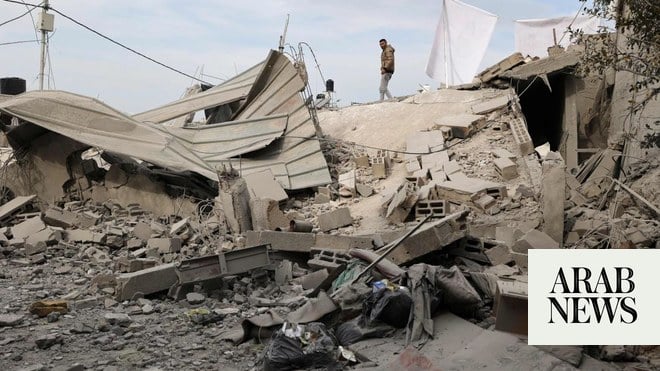
After a two-decade legal battle, Israel’s high court has ruled that about 1,000 Palestinians can be evicted from an area of the West Bank and the land repurposed for Israeli military use, in one of the single biggest expulsion decisions since the Israeli occupation of the Palestinian territories began in 1967.
About 3,000 hectares of Masafer Yatta, a rural area of the south Hebron hills under full Israeli control and home to several small Palestinian villages, was designated as a “firing zone” by the Israeli state in the 1980s. Firing zones are used for military exercises, and the presence of civilians is prohibited.
According to the Geneva conventions pertaining to humanitarian treatment in war, it is illegal to expropriate occupied land for purposes that do not benefit the people living there, or to forcibly transfer the local population.
Israel has argued, however, that the Masafer Yatta villagers living in Firing Zone 918, farming and raising animals there, were not permanent residents of the area when the firing zone was declared, and therefore have no rights to the land.
The high court decision published overnight on Wednesday – ahead of Israel’s Independence Day on Thursday, a public holiday – accepted the state’s argument that the community could not prove they were residents before the 1980s, despite expert testimony and literature presented in court that showed the area has been inhabited for decades.
The judges also rejected the claim that the “prohibition of forcible transfer set forth in international law is customary and binding”, calling it instead a “treaty norm” that is not enforceable in a domestic court, according to the Israeli international human rights lawyer Michael Sfard.
The Israeli defence ministry, one of the bodies responsible for Israeli policy in the occupied West Bank, did not immediately respond to a request for comment.
Since the judges’ decision was unanimous it is not clear whether any further Israeli legal channels are available for the residents of the eight Masafer Yatta villages to appeal. While the ruling did not order evictions, should it choose to do so Israel could now move to forcibly expel the Palestinians at any time.
“The court decision is a racist decision taken by a settler judge [David Mintz, who lives in an illegal settlement in the West Bank],” said Nidal Younes, the head of the Masafar Yatta village council.
“We have been fighting with Israel in the courts for the last 22 years and it took this judge five minutes to destroy the lives of 12 villages and the people who are dependent on the land.
“In the end, history repeats itself: Nakba after Nakba,” he said, using the Arabic term for the expulsion of Palestinians from Israel in wars surrounding the state’s creation in 1948.
Eighteen per cent of the occupied West Bank has been declared “firing zones” for Israeli military training since the 1970s. According to the minutes of a 1981 ministerial meeting, the then agriculture minister, Ariel Sharon, later prime minister, proposed creating Firing Zone 918 with the explicit intention of forcing local Palestinians from their homes.
Palestinian communities living within firing zones have been repeatedly threatened with home demolitions and the confiscation of agricultural land because they lack building permits, which are issued by the Israeli authorities and are nearly impossible to obtain.
People in Masafer Yatta have also been subjected to intensifying attacks from nearby illegal Israeli settler communities in recent years.
In 1999, 700 residents of Firing Zone 918 were evicted, but after an appeal by the Association for Civil Rights in Israel (ACRI) the supreme court issued an injunction allowing them to return until a final decision was made by the high court. The injunction had remained the uneasy status quo until Wednesday’s ruling.
Compromises put forward by the Israeli state that would have allowed Palestinian villagers to work inside the firing zone on weekends, Israeli holidays and for two non-consecutive months of the year were rejected by the Masafer Yatta community on the grounds that it would not be possible to sustain farming activities or make a living.
Breaking the Silence, an Israeli NGO, said in a statement: “The high court has just green-lighted the largest population transfer in the history of the occupation since the early 1970s.
“Deportation of over 1,000 people in favour of expanding settlements, outposts and training of Israel Defence Forces soldiers is not only a humanitarian catastrophe that could set a precedent for other communities across the West Bank, but also a clear step in de facto annexation of the occupied Palestinian territories and cementing military rule indefinitely.”











